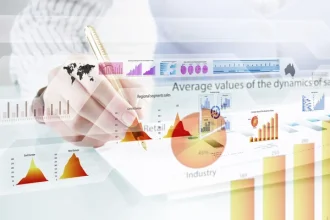Any organization that wants to maintain healthy cash flow and top-notch customer satisfaction needs a streamlined billing process. Relying on manual billing methods can be the leading cause of errors, inefficiencies, and delayed payments. Integrating accounting software into billing processes can help businesses overcome these challenges by automating tedious tasks and providing real-time financial insights.
By adopting effective software solutions, companies can optimize their billing systems and improve their financial health. Dive into the benefits that accounting software offers for businesses looking to improve their billing functionality.

Streamlined Processes
An integrated accounting system streamlines the billing process by automating repetitive tasks and reducing the need for manual entry. Businesses use automation for invoice creation and payment processing to minimize the risk of human error that plagues manual systems. Utilizing software solutions built for automated billing with www.rev.io or other reliable software can consolidate several functions into a single platform. Once a transaction is initiated, relevant data is captured automatically, calculated accurately, and sent to the customer without additional effort.
Employees can focus on core responsibilities, not spend time on administrative tasks, which increases productivity across the board. With less time dedicated to billing, staff can dedicate their efforts to growth-related tasks and cultivate a more innovative business environment.
Improved Accuracy
Inaccuracies in billing can stem from data entry errors or miscalculations. Integrating accounting software improves precision by utilizing advanced algorithms to perform calculations. The chances of human error decrease as the software automatically extracts information from existing databases. Such accuracy will maintain customer trust and boost the company’s credibility.
Proper invoicing eliminates disputes over billing amounts so that businesses can maintain a professional image in front of clients. For companies handling various transactions daily, even a single error can result in financial losses or the need for additional follow-up work. Improved accuracy is a direct benefit of integrating accounting solutions into billing systems. Transactions will reflect true financial positions without unwarranted complications or delays in payments.
Real-Time Financial Insights
Businesses can access real-time financial data with the right accounting software. Its integration can provide a clear picture of income, expenses, and financial health. With immediate access to current data, businesses can adjust their strategies based on cash flow trends, customer payment behaviors, and outstanding invoices. Accounting software offers dashboards that visually represent this information for easier interpretation and swift analysis.
Financial managers can assess the effectiveness of their billing practices and implement necessary adjustments. Late payments can be tracked in real time, and businesses can take measures on the spot. They can react quickly to any emerging issues and efficiently allocate resources where needed for higher stability and growth.
Enhanced Customer Relationships
A seamless billing process has a direct impact on customer satisfaction and relationships. With automated systems in place, customers receive accurate invoices without complications or errors. This transparency provides customers with peace of mind and demonstrates reliability on the part of the business.
Improved billing processes can offer customers various payment options and encourage quick settlements. When clients experience hassle-free transactions, they are more likely to engage positively and maintain a long-term relationship with the company. An efficient billing process allows customer inquiries regarding invoices, payments, or transactions to be resolved more quickly. Addressing issues reflects well on your business and showcases professionalism and commitment to service.
Scalability
Accounting software calls for greater scalability and enables companies to manage fluctuations in transactions seamlessly. With software, the system can adjust accordingly. Modern platforms come equipped with features that facilitate growth, such as customizable invoicing options and the ability to generate detailed financial reports.
As companies scale, they can continue to analyze and integrate new data points into the system, maintaining efficiency throughout the process. Businesses can expand into new markets or provide additional products and services with no need to worry about the limitations of their billing systems.
Cost Efficiency
Automation reduces labor costs associated with manual processing as fewer employees are required to manage billing tasks. By minimizing errors and speeding up payments, companies can lower operational costs. Consistent cash flow prevents short-term financial crises that arise from outstanding payments. Having a unified system can eliminate software redundancies and create a streamlined financial management process that combines various functions. The result is a savings increase for operational expenses and improved resource management across departments.

By understanding and embracing the transformative power of integrating accounting software into billing processes, companies can facilitate more efficient operations. These integrations lead to streamlined processes, improved accuracy, and real-time financial insights. Customer relationships, scalability, and cost efficiency all contribute to long-term success. Embracing these technological advancements positions organizations for continuous growth and improved financial management.

Founder Dinis Guarda
IntelligentHQ Your New Business Network.
IntelligentHQ is a Business network and an expert source for finance, capital markets and intelligence for thousands of global business professionals, startups, and companies.
We exist at the point of intersection between technology, social media, finance and innovation.
IntelligentHQ leverages innovation and scale of social digital technology, analytics, news, and distribution to create an unparalleled, full digital medium and social business networks spectrum.
IntelligentHQ is working hard, to become a trusted, and indispensable source of business news and analytics, within financial services and its associated supply chains and ecosystems











